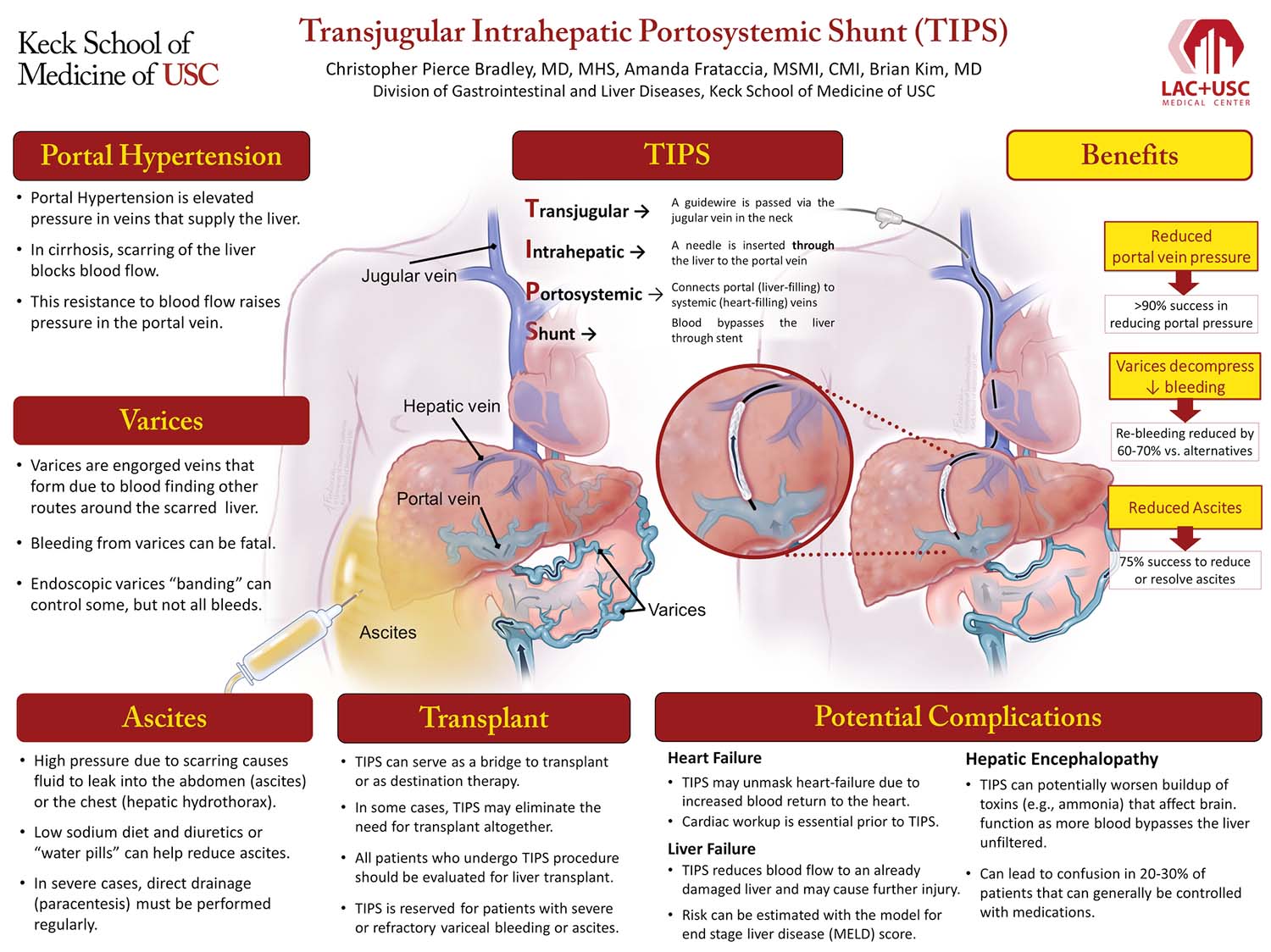Transjugular Intrahepatic Portosystemic Shunt (TIPS)
Christopher Pierce Bradley MD, MHS, Amanda Frataccia MSMI, CMI and Brian Kim, MD
Keck School of Medicine of USC and LAC+USC Medical Center
This presentation is an excerpt from the ALF 2021 Poster Competition. This competition showcases posters and a brief video created by early career investigators from across the country on six areas of educational focus: fatty liver disease, liver cancer, liver transplantation, pediatric liver disease, rare liver disease and viral hepatitis. Participants are tasked with translating complicated medical information into a poster which can be easily understood by patients or the public. Posters are reviewed by a formal panel of judges comprised of Medical Advisory Council members, Board Members and friends of ALF to select a winner in each category.
The Transjugular Intrahepatic Portosystemic Shunt or “TIPS” procedure is performed in patients with cirrhotic liver disease who suffer from severe symptoms caused by portal hypertension – namely variceal bleeding, and ascites that do not improve with other endoscopic procedures, medications, or dietary changes. In these cases, TIPS can reduce or eliminate these symptoms and their dangerous effects by inserting a stent through the liver to create a passage for blood to bypass the liver on its way to the heart, thereby reducing portal hypertension and the problems it causes. TIPS is often considered in patients who are waiting for a liver transplant to reduce symptoms while on the wait list but can also be performed on patients for whom a transplant is not an option. Sometimes, TIPS can improve symptoms to the point where a transplant is no longer needed. TIPS is only considered in patients with very severe symptoms, however, due to the risks of the procedure which can potentially cause problems with the heart, the liver itself, and the brain. Fortunately, with proper medical workup and consideration of whether a patient is likely to benefit from TIPS, most of these risks can be avoided or managed with appropriate medications.
Last Updated on December 1, 2021
Share this page






